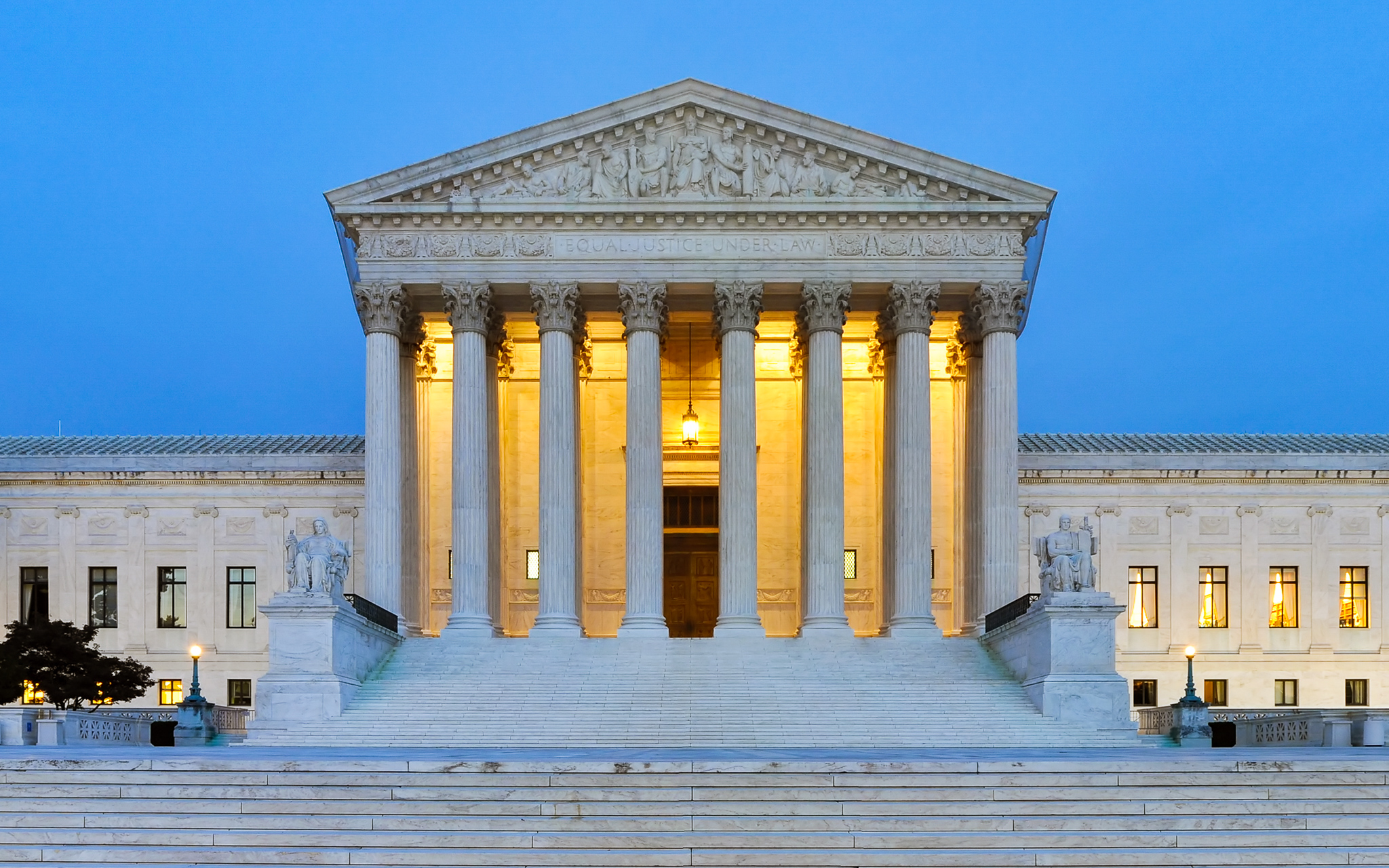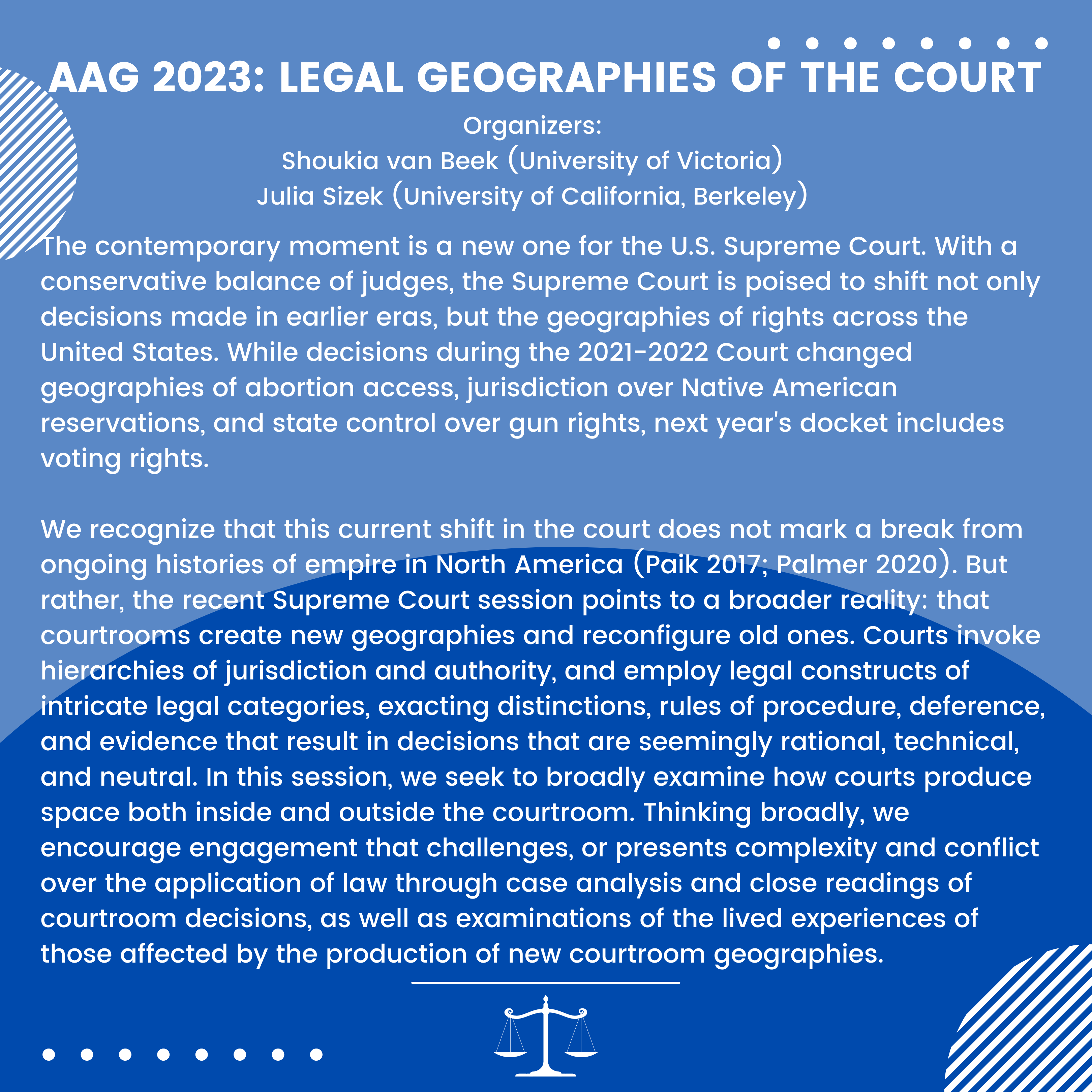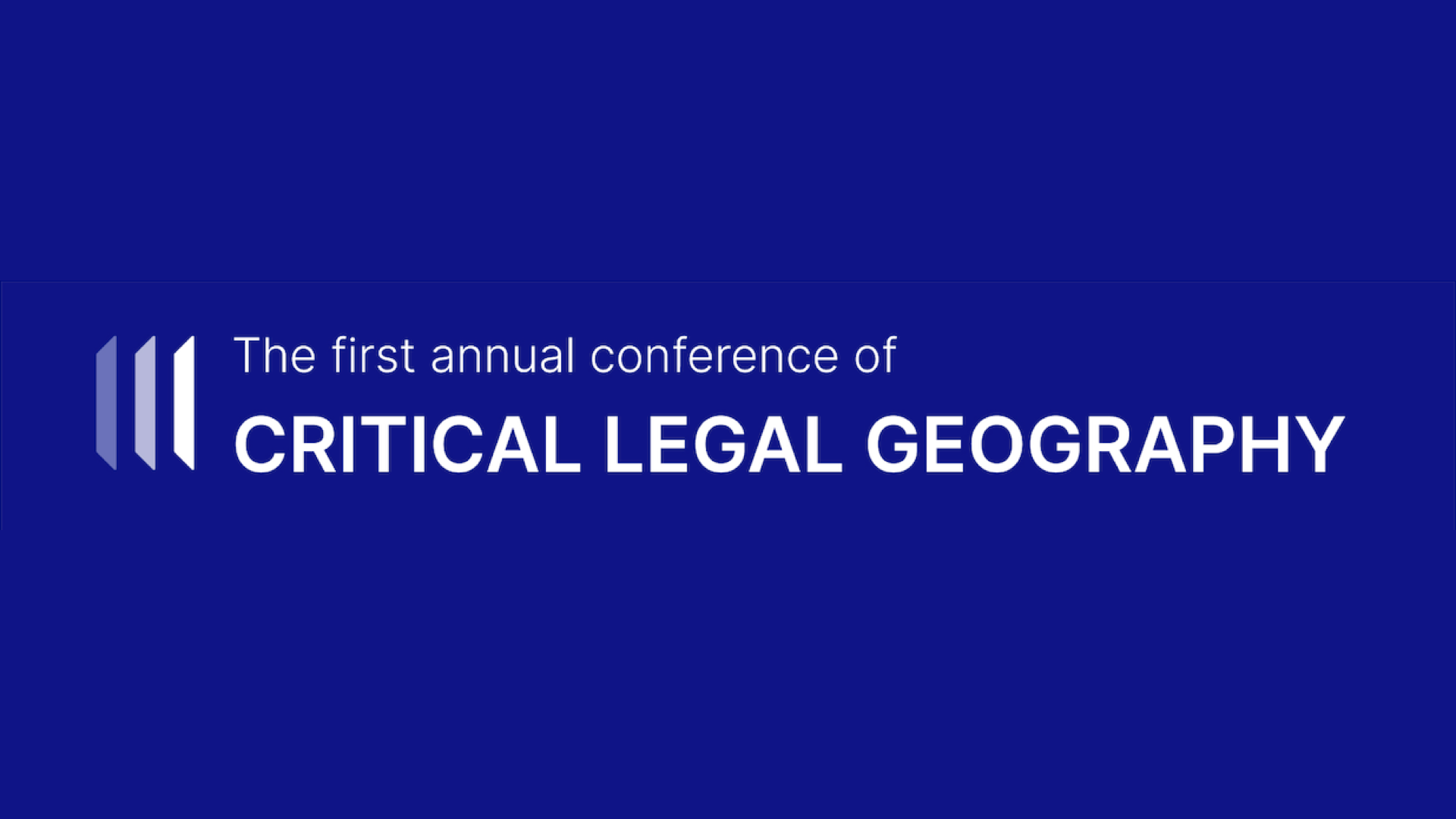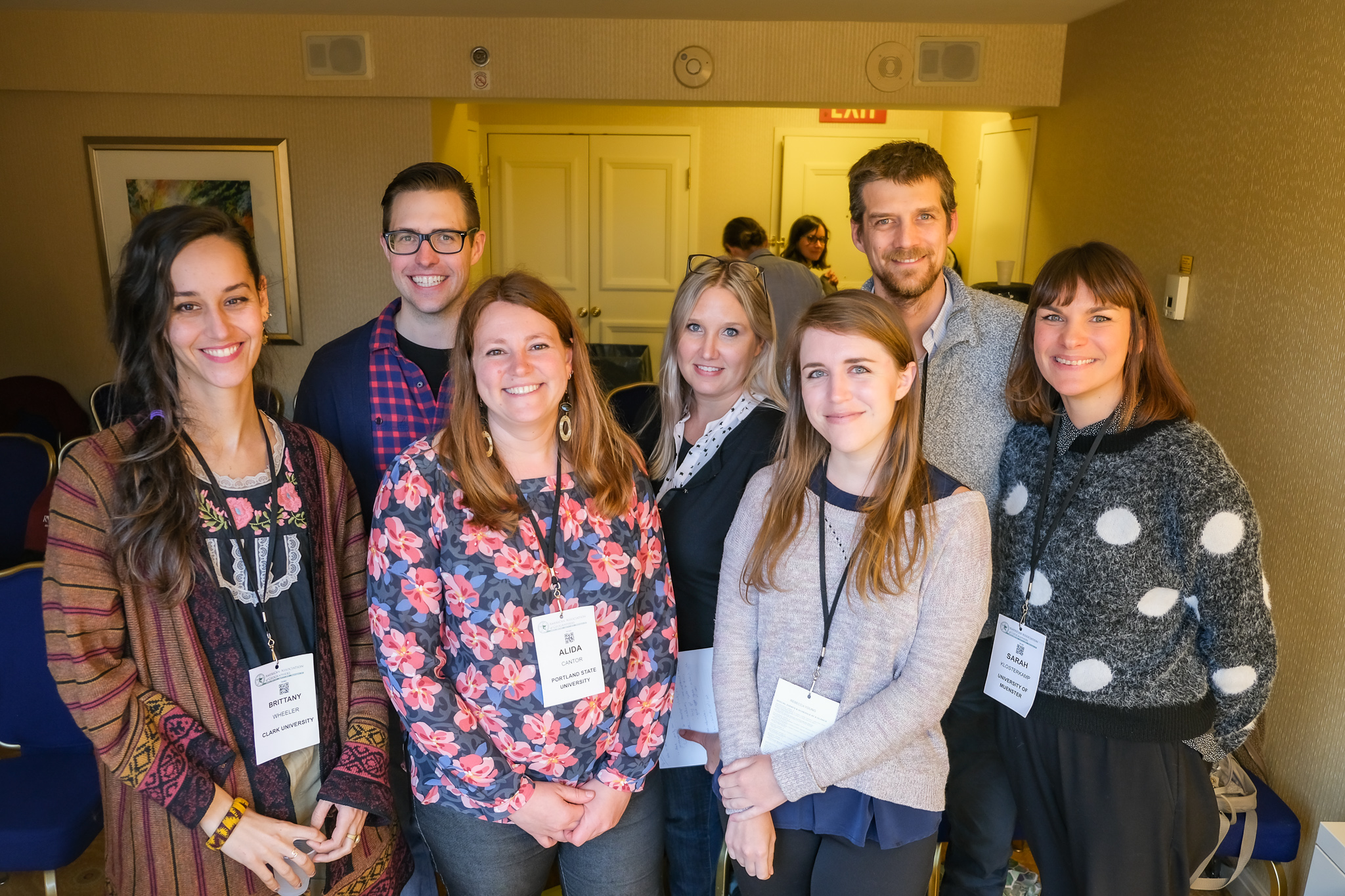
Call for Papers - Legal Geographies of the Courts at AAG 2023
The contemporary moment is a new one for the U.S. Supreme Court. With a conservative balance of judges, the Supreme Court is poised to shift not only decisions made in earlier eras, but the geographies of rights across the United States. While decisions during the 2021-2022 Court changed geographies of abortion access, jurisdiction over Native American reservations, and state control over gun rights, next year’s docket includes voting rights.
Organizers:
- Shoukia van Beek (University of Victoria)
- Julia Sizek (University of California, Berkeley)
We recognize that this current shift in the court does not mark a break from ongoing histories of empire in North America (Paik 2017; Palmer 2020). But rather, the recent Supreme Court session points to a broader reality: that courtrooms create new geographies and reconfigure old ones. Courts invoke hierarchies of jurisdiction and authority, and employ legal constructs of intricate legal categories, exacting distinctions, rules of procedure, deference, and evidence that result in decisions that are seemingly rational, technical, and neutral. In this session, we seek to broadly examine how courts produce space both inside and outside the courtroom. Thinking broadly, we encourage engagement that challenges, or presents complexity and conflict over the application of law through case analysis and close readings of courtroom decisions, as well as examinations of the lived experiences of those affected by the production of new courtroom geographies.
Although we use the United States Supreme Court as our example here, this session is not only limited to cases situated in the United States. Courts around the world produce geographies of sovereignty, territory, and jurisdiction (Darke and Khan 2021; Haddeland and Franko 2021; Klosterkamp 2021; O’Donnell, Robinson, and Gillespie 2020). We especially welcome papers on the following topics:
- Inequalities produced by courtroom geographies, and geographies of civil and human rights
- Mobilities and immobilities produced through the courtroom
- Strategic engagements with the law and confrontations of the state through court cases Resistance to court-imposed geographies
- Courtwatching practices
- Geographies of the courtroom itself, including digital ethnographies of pandemic-era courtrooms Land, water, and natural resources as property in courtroom decisions
- Jurisdictional decisions and the production of authority
- Articulations of sovereignty and sovereign spaces in courts
- Court strategies, tools, and conventions for legitimization
- Institutionalization of power structures Delimitations of spatio-legal identities (and access to rights)
- Characterizations of specific places and locations in court decisions The role of geographic or spatial contexts within judicial reasoning
To apply for this panel, please email Shoukia [email protected] and Julia [email protected] by October 30. Also, please indicate your preference for virtual or in- person presentation (or both), so we can best plan the sessions to accommodate the various uncertainties we all are facing.




